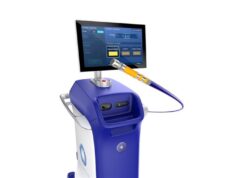Real-world data on the Boston Scientific S-ICD system (subcutaneous implantable defibrillator) have been highlighted online in the European Heart Journal. The interim analysis of the ongoing EFFORTLESS S-ICD registry, which evaluated 456 patients with a mean follow-up of 558 days, is the first real-world study to date and confirms the clinical benefits of the S-ICD system in a broad range of patients at risk of sudden cardiac arrest. As the world’s least invasive implantable defibrillator, the S-ICD system provides protection for patients at risk of sudden cardiac arrest without touching the heart.
“This data set is important as it is the first long-term real-world experience demonstrating safe and effective performance of the S-ICD System,” says Pier Liambase, Consultant Electrophysiologist at the Heart Hospital in London, England and lead author of the publication. “This should further establish the S-ICD system as a worthwhile option for a considerable portion of the ICD indicated population that is eligible for the S-ICD System.”
The EFFORTLESS registry is a post-market, observational, non-randomised study currently enrolling patients in seven countries, comprised of the Czech Republic, Denmark, Germany, Italy, the Netherlands, New Zealand and the United Kingdom. The registry is expected to enrol 1,000 patients and generate five years of follow-up data.
The publication includes the following highlighted S-ICD System interim results:
- Largest patient cohort (456 patients) with longest follow-up (average of 558 days)
- 100% conversion of spontaneous ventricular tachyarrhythmias
- 99.7% conversion of acute ventricular tachyarrhythmias
- 6.4% inappropriate therapy rate with the use of dual zone programming
- 180- and 360-day complication-free rates of 94%
This defibrillation therapy has been commercially available in Europe since 2009 and was approved in the United States in late 2012.
The safety and effectiveness of the S-ICD System has not been established in paediatric patients.









